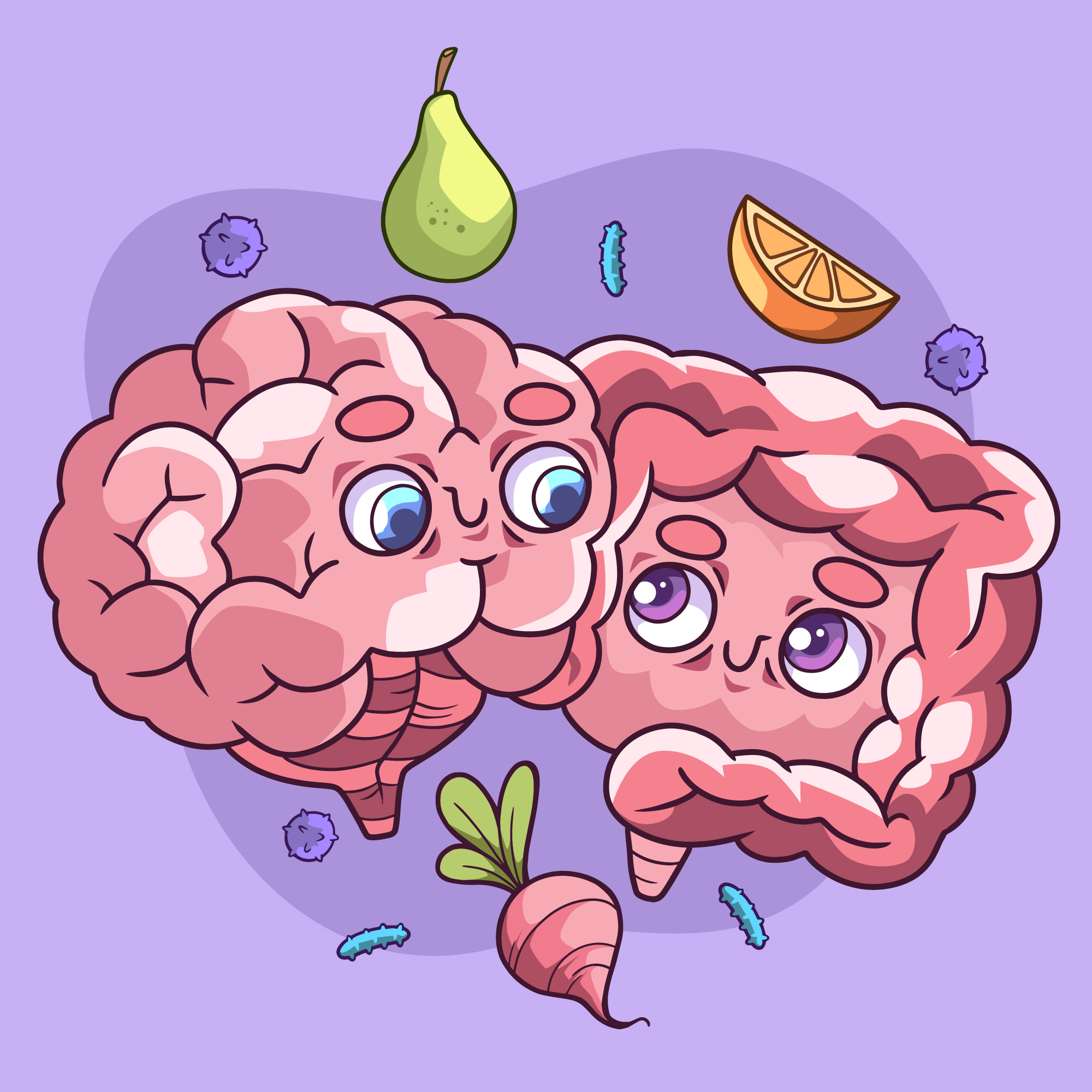In recent years, the scientific community has been uncovering a fascinating and complex connection between gut health and mental health. Emerging research suggests that the state of our digestive system might play a significant role in influencing our mood, emotions, and overall mental well-being. This article delves into the intriguing link between gut health and mental health, exploring the science behind it and its potential implications for our overall wellness.
The Gut-Brain Axis: At the heart of this connection lies the gut-brain axis, a bidirectional communication pathway between the gastrointestinal tract and the brain. This intricate network involves the gut, its resident microbes (collectively known as the gut microbiota), the immune system, and the central nervous system. Researchers believe that this axis plays a crucial role in maintaining both physical and mental health.
The Microbiota Influence: The gut is home to trillions of microorganisms that make up the gut microbiota. These microorganisms, including bacteria, viruses, fungi, and other microbes, form a complex ecosystem that plays a vital role in digestion, immune system regulation, and the production of essential molecules. Recent studies have revealed that the composition and diversity of the gut microbiota can impact mood, behavior, and cognitive function.
Serotonin Production: One of the key connections between gut health and mental health is the production of neurotransmitters like serotonin. Serotonin, often referred to as the “feel-good” neurotransmitter, is primarily produced in the gut. A significant portion of serotonin production occurs within the enterochromaffin cells of the intestines. This production is influenced by the gut microbiota, as certain bacteria are involved in the synthesis of precursor molecules required for serotonin production.
Inflammation and Immune Response: An imbalanced gut microbiota can lead to inflammation and immune responses that affect the brain. Chronic inflammation has been linked to conditions such as depression, anxiety, and even neurodegenerative diseases like Alzheimer’s and Parkinson’s. The gut’s immune cells communicate with immune cells in the brain, further highlighting the connection between gut health and mental well-being.
Stress and the Gut: The gut-brain axis also plays a role in stress responses. Stress can disrupt the balance of the gut microbiota, leading to a phenomenon known as “dysbiosis.” Dysbiosis is associated with a range of gastrointestinal and mental health issues. Conversely, an unhealthy gut can contribute to heightened stress responses and anxiety due to the intricate communication between the gut and the brain.
Practical Implications: As the understanding of the gut-brain axis deepens, researchers are exploring potential therapeutic interventions. Probiotics and prebiotics, dietary fibers that nourish beneficial gut bacteria, are being investigated for their potential to positively influence mental health. Additionally, dietary changes that support a diverse and healthy gut microbiota, such as consuming a balanced diet rich in fiber and fermented foods, may contribute to improved mental well-being.
The connection between gut health and mental health is a complex and exciting field of research that underscores the intricate interplay between various systems in our bodies. While much remains to be discovered, the evidence suggests that nurturing a healthy gut through proper diet, stress management, and potentially probiotic interventions may have a positive impact on our mental well-being. As science continues to unravel the mysteries of the gut-brain axis, we gain valuable insights into the holistic nature of human health.
